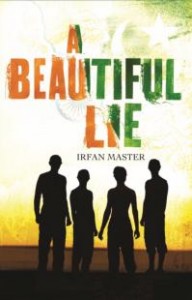We’re nearing the end of an election season marked by the length and rancor of the campaign. Many on all sides long for it all to be over, but no matter who wins, I remain concerned about the level of divisiveness and whether it can be healed from the top down, by whoever ends up in charge, or the bottom up, by the people themselves. I have heard some commentators talk about the United States breaking up by region, and it is tempting to want to live in a place where everyone else thinks like you.
 An example of a nation breaking up over religious and ethnic divisions is India. Following the inspiring triumph of a nonviolent independence movement in 1947, the new nation immediately split apart into predominantly Hindu India and predominantly Muslim Pakistan. (In those days, Pakistan was split geographically and two decades later East Pakistan would gain its own independence and become Bangladesh.) The partition divided families, displaced millions, and touched off a spasm of ethnic violence that claimed the lives of hundreds of thousands of Muslims, Hindus, and Sikhs, including the leader of the independence movement, Mahatma Gandhi.
An example of a nation breaking up over religious and ethnic divisions is India. Following the inspiring triumph of a nonviolent independence movement in 1947, the new nation immediately split apart into predominantly Hindu India and predominantly Muslim Pakistan. (In those days, Pakistan was split geographically and two decades later East Pakistan would gain its own independence and become Bangladesh.) The partition divided families, displaced millions, and touched off a spasm of ethnic violence that claimed the lives of hundreds of thousands of Muslims, Hindus, and Sikhs, including the leader of the independence movement, Mahatma Gandhi.
For readers at the older elementary level and up, Irfan Master’s A Beautiful Lie, published in the U.S. and Canada by Albert Whitman, portrays the partition of India and Pakistan through the eyes of 13-year-old Bilal, whose single father is dying of cancer. Bilal’s father is a respected community leader, a Muslim who skillfully negotiated among merchants of various faiths and interests as head of the village market before he fell ill. As Bilal’s father is dying, so is peace, as gangs of Hindu, Sikh, and Muslim youths attack each other and innocent villagers; even Bilal’s older brother has joined one of the gangs.
Bilal knows that if his father finds out about the riots and upcoming partition, it will kill him, so the youngster and his friends conspire to keep the truth from his father. Sometimes that means chasing visitors away so that the old man, who is immobilized due to a stroke related to the cancer, remains in his bedroom alone and in pain. At one point, Bilal convinces the printer, another friend of his father’s, to create a fake newspaper with the headline “One India.” Throughout the months counting down to the August 14-15 partition, Bilal is tormented with guilt. Is it always wrong to lie? Are some lies justified because of the consequences of telling the truth? If only a lie could prevent violence rather than shield a man of peace from it…
Master’s debut novel is tautly written, and the suspense keeps readers turning the pages. Preceding each chapter is a countdown to partition, which serves as a “ticking clock” to build interest. This novel is an especially good choice for global history classes, for students to understand what it meant for the individuals—families and friends—torn apart when a large country was divided, messily, along religious and ethnic lines.